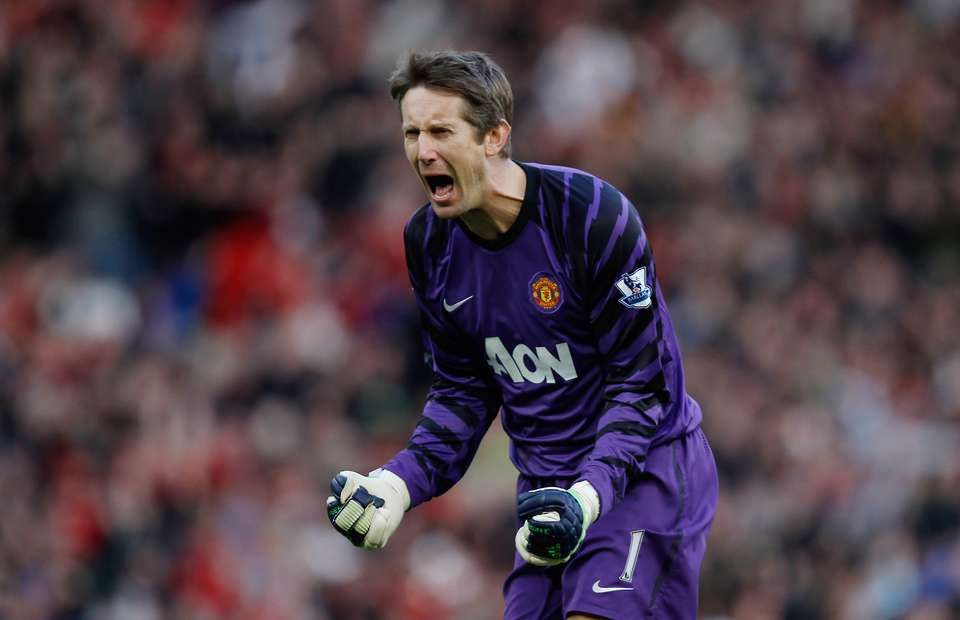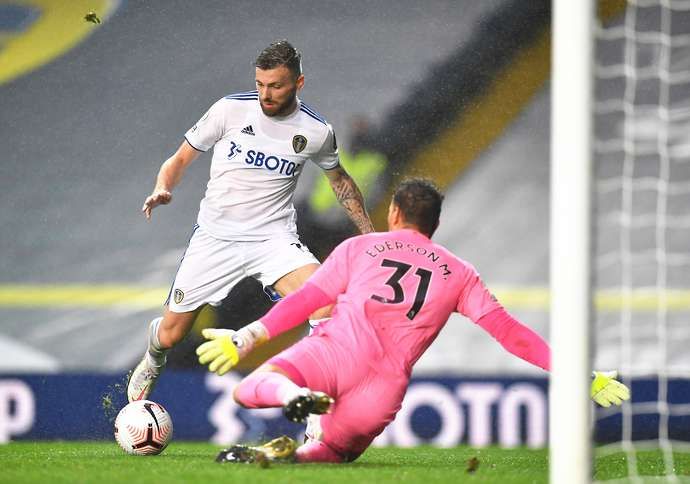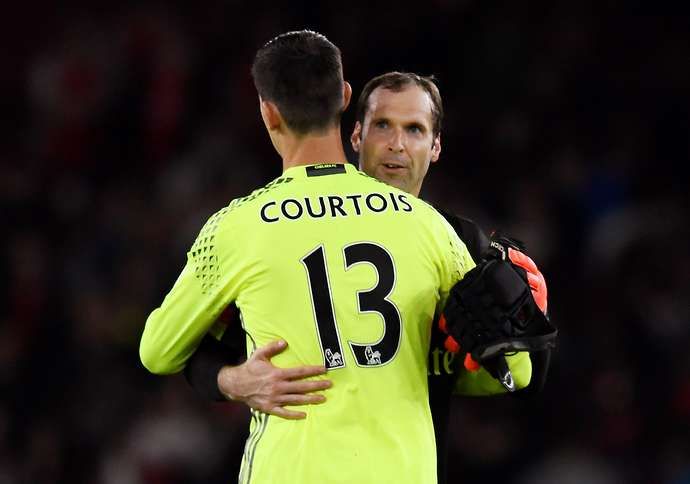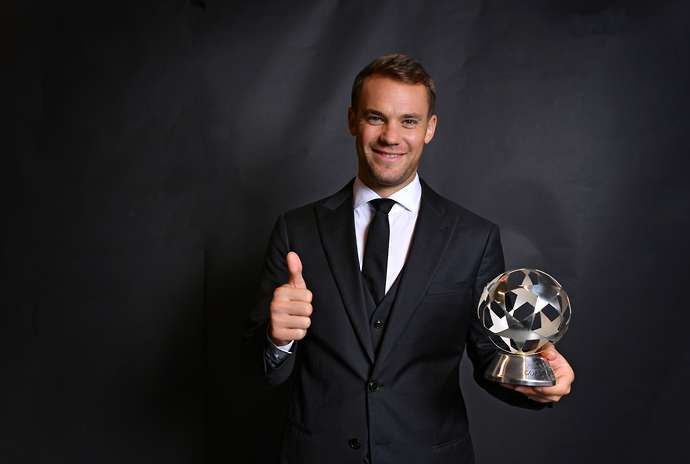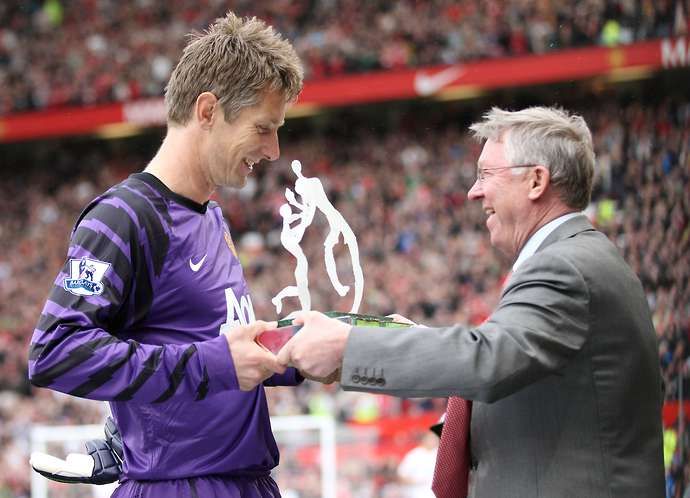When Edwin van der Sar hung up his boots in 2011, the towering Dutchman brought two eras to a close. The first and most obvious was a six-year period in which he’d kept the net at Old Trafford with an almost understated imperiousness, never quite commanding the limelight with the exception of his penalty heroics in the 2008 Champions League final, yet never having it pejoratively shone upon him either.
The second era was less noticeable at the time but stands out like a sore thumb now; van der Sar, to this day, is the last Premier League-winning goalkeeper to have entered a title campaign above the age of 30.
Indeed, since 2011/12, every single goalkeeper to win the Premier League title started the season (for the sake of consistency, we have dated this to August 1st) in their 20s. And while that would be an insignificant correlation for any other position on the pitch, for goalkeepers it is an indisputable watershed. Eight of the twelve seasons between 1992/93 and 2003/04 contained a Premier League title-winning No.1 who was 30+, while the intermittent period of 2004/05 to 2010/11 saw a 30+ van der Sar lift the English crown four times.
Therefore, of the 16 times a goalkeeper between 20-30 has won the Premier League title, nine of those have been in the last nine years, compared to a mere seven in the previous 19, dropping the average age of title-winning goalkeepers from 31 up until 2010/11 to a mere 25 thereafter. Likewise, of the four times a 20-something goalkeeper won the Premier League between 1992/93 and 2003/04, the youngest was at least 27; since then, there have been nine seasons in which a goalkeeper younger than that has finished the campaign with top-flight glory.
Accordingly, a simple question prevails: where have all the elder goalkeepers gone? It was once a perceived wisdom that goalkeepers get better with age, and yet van der Sar, who was signed by Manchester United at 34, is the last Premier League-winning ‘keeper that mantra truly applied to.
Even if we temporarily remove the title-winning criteria from discussion, the only recent exception of a top Premier League club signing a 30+ goalkeeper to be their No.1 is Claudio Bravo, who signed for Manchester City at 33. But we all know how that panned out - one season of substandard performances and he was bumped down to understudy, making way for a much younger replacement in 24-year-old Ederson. Go back a little further and Arsenal signed a 33-year-old Petr Cech in 2015, but he never replicated the heights of his Chelsea spell and after three seasons was dropped for 26-year-old Bernd Leno.
Curiously, the goalkeepers who immediately succeeded van der Sar at the top of the Premier League represented the exact opposite end of the spectrum to a retiring 40-year-old. The following year, Man City went on to win the league with a 23-year-old Joe Hart in goal, while the subsequent campaign saw David De Gea lift English football’s biggest prize at just 21.
But the trend started a little before that when Chelsea spent big on a young Cech in summer 2004 - in the process replacing 30-year-old Carlo Cudicini - because while the average age of title-winning No.1s between that summer and van der Sar’s retirement in 2011 was technically 31, the youthful Cech and the ever-ageing Dutchman were in fact the only goalkeepers to lift the Premier League crown during that time, numerically balancing each other out.
The hindsight of history now maps out that period as the era of transition - a veteran goalkeeper representing one Premier League juggernaut, compared to one at the very beginning of his career representing the other.
In fact, it’s clear that Chelsea have made the biggest impact of any Premier League club on the age of title-winning goalkeepers. Just as Cech was signed to controversially usurp the by and large very reliable Cudicini as a 22-year-old, Jose Mourinho found himself having to make the same tough decision once again a decade later, this time dropping a now 32-year-old Cech for Chelsea’s 2014/15 title-winning season to make room for a goalkeeper ten years his younger in Thibaut Courtois.
So why have opinions on goalkeepers, especially in terms of age, seemingly changed so greatly from the first decade or so of the Premier League, and why have those opinions only sharpened over the last decade? Well, it’s no secret that the role has seen a drastic transition in recent years, tactically influenced by Pep Guardiola and Jurgen Klopp and inspired by the on-pitch performances of Manuel Neuer, whose emergence as Bayern Munich’s playmaking sweeper-keeper has made him the archetype for pretty much every goalkeeper at a top European club today.
Far from the days of David Seaman and Peter Schmeichel when goalkeepers were judged exclusively on what they could do with their hands, with a dash of “commanding presence” thrown in, the ball-playing quality to serve as the eleventh man in possession is now of similar if not equal importance, as teams not only look to keep the ball more, but also attempt to beat the opposition’s high-press in their own defensive third, knowing it will create space in advanced positions.
And thus, when the time came for Klopp and Guardiola to implement this approach within their respective Liverpool and City teams by bringing in goalkeepers that could naturally build from the back, a generational factor emerged - while very few elder goalkeepers were particularly comfortable playing out from their own goal-line, younger ones had spent the previous few years of their development being influenced by Neuer, if not trying to directly emulate him.
That explains why the two top goalkeepers currently in the Premier League, Alisson and Ederson, are both in their mid-twenties rather than either side of 30, but Cech was the first of the division’s great young goalkeepers - in fact, the first to win the competition aged younger than 27 - and Neuer wouldn’t truly redefine expectations of the role until after his move to Bayern in 2011, some years later. So how can we justify the switch to young goalkeepers so much earlier in the Premier League?
Well, it could be the case that the perceived wisdom of older goalkeepers being more reliable had simply started to fizzle out by then, but even as recently as 2016, Arsene Wenger remarked that the peak age for goalkeepers was between 28 and 37, so at least he maintained that belief until pretty much the end of his Arsenal tenure, and may well still hold it to this day.
"The peak age is 28 to 36 or 37. That is where you can absorb the bullets – you have the experience and you still have the physical quality to perform. For a footballer it is always important to have that balance between experience and physical potential. Unfortunately we need our body to express what we know. Our body allows us to perform more in a goalkeeper’s position compared to a striker’s."
Nonetheless, when Wenger initially arrived in the Premier League, his views on the beautiful game triggered a greater emphasis on athleticism and physicality. Whereas that appeared to allude goalkeepers in the early stages of the Premier League, maybe by the aforementioned period of transition it had simply started to catch up with them, ending the days when it was acceptable for goalkeepers - including Mark Bosnich who served as No.1 during Manchester United’s 1999/00 campaign - to be a little rotund, to not work particularly hard on fitness and rely instead on a combination of natural reflexes, positional awareness and experience.
The technology of footballs changed throughout this period too - goalkeepers now face shots with greater swerve and less predictability than ever before, making that extra ounce of youthful agility and spring all the more valuable. You also have to wonder much of it boils down to financial factors - signing a young goalkeeper for big money is a worthwhile investment if they’ve still got anywhere up to 15 years ahead of them in the game; snapping up a 30+ goalkeeper who, if on big enough wages, will be happy seeing out his contract by warming the bench should he lose his place in the team, is essentially risking money being thrown down the drain.
But perhaps, more simply, this is all a story of trend setters, of examples for other clubs to follow. Just as van der Sar to date remains the last of his kind in the Premier League, Cech was the first of his and what he gave Chelsea remains indisputable; 11 seasons, three Golden Gloves, three Premier League titles, Champions League and Europa League titles, three League Cups and four FA Cups. Van der Sar, as great as he was and as successful as he was for United, only served for the club for six years in comparison.
Whatever the underlying causes, one thing is clear; the idea of older goalkeepers being the better and more reliable ones, at least in the context of Premier League title races, died when van der Sar hung up his boots. Nowadays, it’s all about the younger models - the mid-20s goalkeepers ready to walk straight into the team who, with a bit of good luck, might just give their clubs a decade of good service. Of course, there will at some stage be an exception to the rule, but with athleticism, style of play and finance increasingly crucial driving forces behind recruitment, title-winning goalkeepers in their 30s are looking like a thing of the past.



















